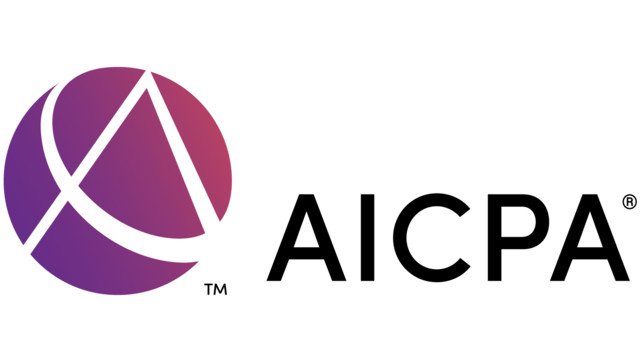AICPA News is a roundup of recent announcements from the American Institute of CPAs.
AICPA Commends Rice on Disaster Tax Relief Efforts
The American Institute of CPAs (AICPA) thanked U.S. Representative Tom Rice (R-S.C.) in a letter for his continued efforts to provide permanent and consistent tax relief to individuals and businesses affected by natural disasters.
The AICPA expressed the importance of offering “certainty to taxpayers who are victims of natural disasters” and expressed appreciation for Congressman Rice’s “thought leadership in finding new ways to solve these difficult problems.” The AICPA also provided additional guidance to ensure that all taxpayers receive the benefits of the bill’s provisions:
- Mandatory 60-Day Extension
- Qualified Taxpayers
- Disaster Area
H.R.3287 addresses a dire need for victims of natural disasters to receive appropriate and expedited tax relief and peace-of-mind during these times of environmental hardship.
AICPA Presents Distinguished Service Award and Arthur J. Dixon Award
The AICPA honored two individuals during its 2019 Fall Tax Division Meeting with the Tax Division Distinguished Service Award and the Arthur J. Dixon Memorial Award. The awards were presented November 14th and 15th, respectively, in Washington, D.C.
Blake Vickers, CPA, CGMA was honored with the Distinguished Service Award during a reception for Tax Division members. Vickers works at Corning Incorporated where he focuses on tax policy and governmental/regulatory affairs. He currently serves both on the AICPA’s Tax Executive Committee and as chair of the Global Tax Issues Task Force.
Jane T. Rubin, CPA was honored with the Arthur J. Dixon Memorial Award. Rubin has nearly 25 years of service to the profession, and has served on numerous AICPA committees and task forces and has selflessly given her time advancing tax education through her volunteerism. Rubin currently serves on the AICPA National Accreditation Commission, highlighting her passion for tax education.
AICPA Building Diverse Talent Pool of CPAs though Leadership Workshop
The AICPA encourages qualified students to apply for the 2020 Accounting Scholars Leadership Workshop (ASLW) being held May 13-15 in New Orleans.
The annual workshop, now in its 26th year, is an opportunity for minority college accounting students who plan to pursue the CPA designation to strengthen their professional and networking skills and increases their understanding of the career possibilities, while at the same time bolstering the pipeline of minority members of the profession.
During the three-day program, students explore what it means to be a CPA, how their backgrounds and experience can add value to the profession and network with practicing CPAs. Sessions cover business etiquette, interviewing and presentation skills and CPA exam preparation.
The program is open to sophomore, junior, senior, 5th year or graduate students for the 2019-20 academic year majoring in accounting, finance or tax and intending to pursue the CPA credential. Applications will be accepted through January 20, 2020. More information about the program, as well as instructions to apply, are available at thiswaytocpa.com.
16 Year-End Financial Planning Tips from the AICPA
As 2019 comes to an end, so does the window of opportunity to take advantage of certain tax and financial planning strategies. To help Americans be best positioned come Tax Day 2020, CPA financial planners with the AICPA share the following 2019 year-end tips.
1. Prepay Real Estate Taxes on a Residence to Obtain a Discount
2. Protect Your Gains from Taxes by Leveraging Your Losses
3. If You Go Green, Don’t Forget to Save Green
4. Pull the Trigger on Those Much-Needed Home Business Purchases
5. Check Your Withholdings
6. Start Saving Early for Education with 529 education-savings contributions
7. Bunch Charitable Contributions
8. Donate Your Required Minimum Distribution Strategically
9. Max Out That Health Savings Account
10. Maximize Employer 401(k) Match Opportunities
11. Maximize Roth Opportunities
12. Winter Breaks May Mean Expensive Kid Camps… Prepay to Save on Taxes
13. Gift to Heirs Today to Reduce Future Estate Tax
14. Plan for Today, Tomorrow and Beyond with Multi-Year Tax Projection
15. Consider Roth IRA Conversion
16. Self-Employed with Extra Cash? Establish a Retirement Plan for Yourself and Employees?
AICPA’s Auditing Standards Board Issues New Standards to Amend the Description of the Concept of Materiality
The AICPA Auditing Standards Board (ASB) has issued Statement on Auditing Standards No. 138, Amendments to the Description of the Concept of Materiality, and Statement on Standards for Attestation Engagements No. 20 of the same title to amend various AU-C and AT-C sections in AICPA Professional Standards.
The revised description of materiality is as follows:
Misstatements, including omissions, are material if there is a substantial likelihood that, individually or in the aggregate, they would influence the judgment made by a reasonable user based on the financial statements.
The SAS and SSAE become effective for periods ending, or for practitioners’ examination or review reports dated, on or after December 15, 2020, respectively.
For the latest information on these standards please visit our hub site, Auditing and Attestation Standards Issued in 2019: Information and Resources.
ASB’s New Agreed-Upon Procedures Standard Gives CPAs More Flexibility
The AICPA Auditing Standards Board (ASB) has released Statement on Standards for Attestation Engagements No. 19, Agreed-Upon Procedures Engagements, to supersede SSAE No. 18 AT-C section 215 of the same title in AICPA Professional Standards. SSAE No. 19, which also amends SSAE No. 18 AT-C section 105, Concepts Common to All Attestation Engagements.
The SSAE provides flexibility to a practitioner performing an agreed-upon procedures engagement by:
- removing the requirement that the practitioner request an assertion from the responsible party;
- allowing procedures to be developed over the course of the engagement;
- allowing the practitioner to develop or assist in developing the procedures;
- no longer requiring intended users to take responsibility for the sufficiency of the procedures and instead requiring the engaging party to simply acknowledge the appropriateness of the procedures prior to the issuance of the practitioner’s report, and
- permitting the practitioner to issue a general-use report.
SSAE No. 19 is effective for agreed-upon procedures dated on or after July 15, 2021. Early implementation is permitted.
Thanks for reading CPA Practice Advisor!
Subscribe Already registered? Log In
Need more information? Read the FAQs
Tags: Accounting, Auditing




